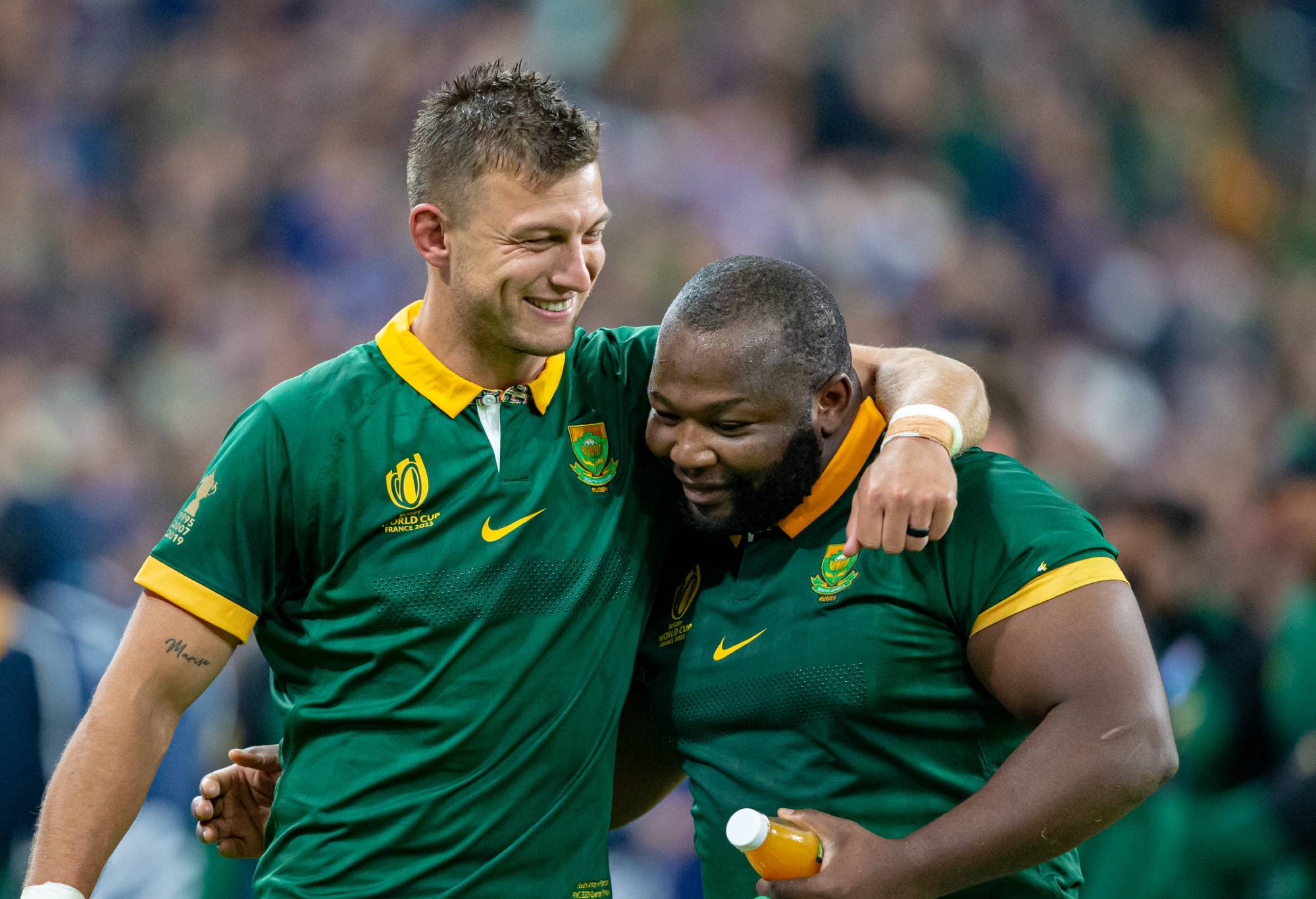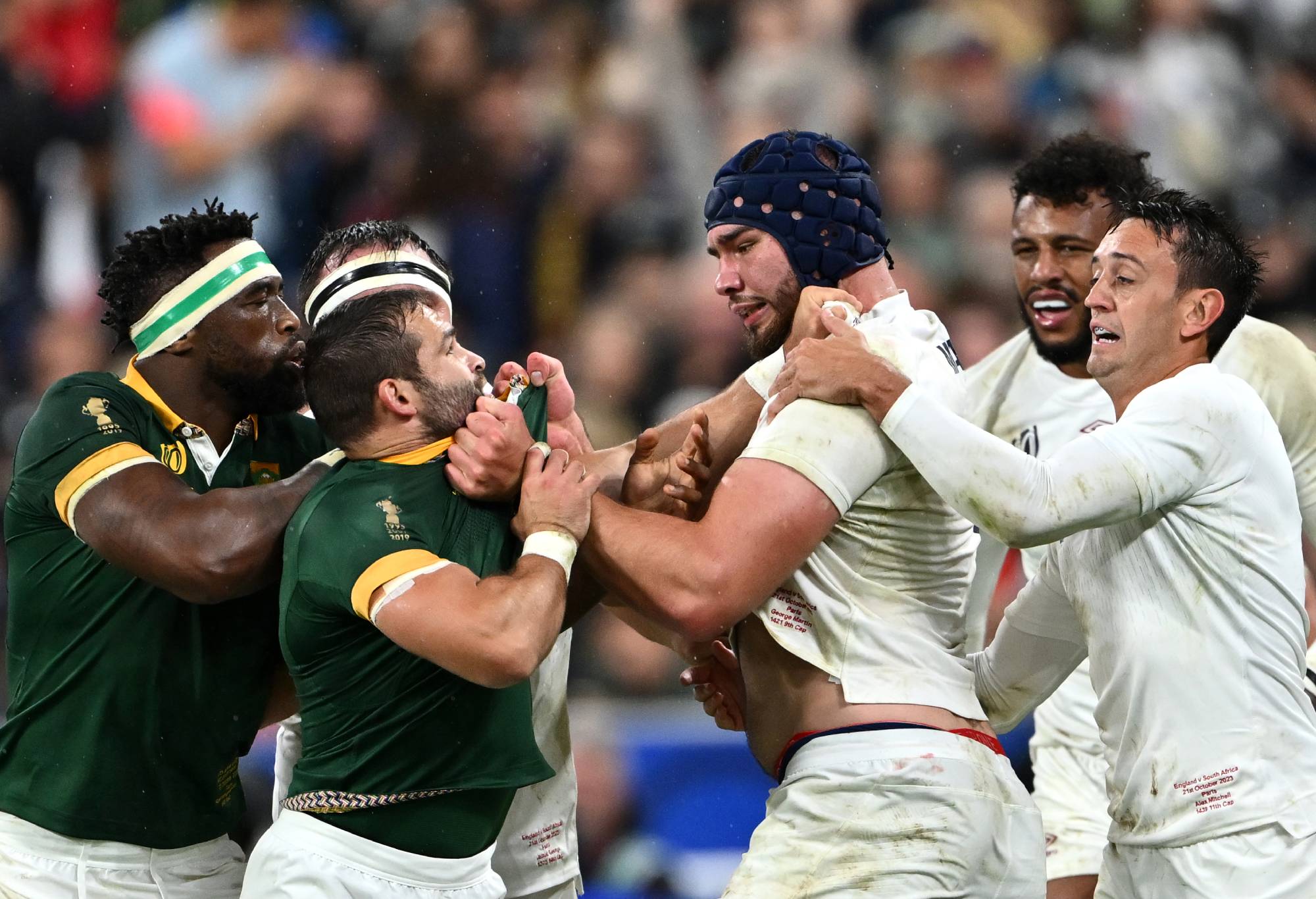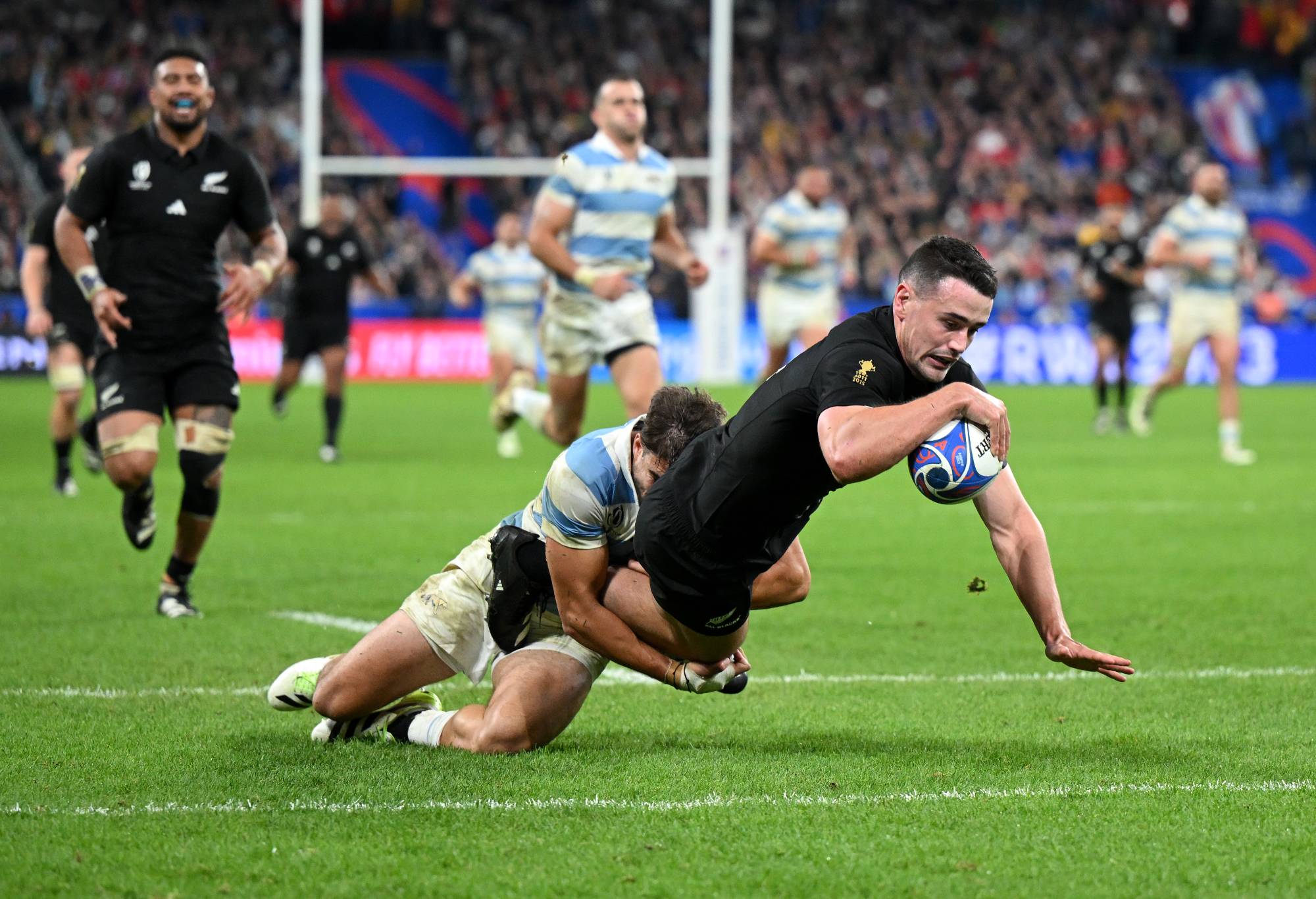With rugby’s two greatest rivals, New Zealand and South Africa, set to square off in the World Cup final, fans everywhere should be relishing the opportunity to see the two heavyweights go toe to toe for the title. Right?
Not so fast. Before the weekend’s semi-finals were even completed, at-home social media pundits who don’t know better, and a stream of rugby journalists, who should, began to cry foul about how the final was a missed opportunity and a bad outcome for rugby.
Now that England has missed out – a demonstrably more deserving semi-final winner than South Africa, according to many – those cries have only grown louder.
With one of the contenders about to win their fourth title, and the pair of them about to account for seven of the ten cups contested between them, the notion that it would be good for the game to share things around, to have a new winner emerge, has taken root.
That’s understandable to a point. The sign of a healthy, competitive sport is to have unpredictability of outcomes, for a wide range of competitors to not only believe they have a genuine chance of winning, but to actually do so.

Handre Pollard and Ox Nche were match winners against England (Photo by Getty Images).
In this World Cup there were four favoured nations, two of which, France and Ireland, had never won, and in Ireland’s case, had never played in a semi-final. To those four contenders, on the evidence of their semi-final, we can now probably add 2003 winner, England.
But this is not school sport, where everyone is patted on the back and handed a winner’s ribbon. It is the Rugby World Cup, an exacting four-yearly test of a squad’s total resources, to establish who really is the best of the best.
Yes, margins are fine. South Africa has won both their play-off matches by a single point. New Zealand survived 37 phases at the death to hold out Ireland. For all of the meticulous planning that goes into a World Cup campaign, luck and the bounce of the ball plays an important role.
But at the big boys’ table, experience also counts. A lot. Players who have been in those pressure cooker situations before – Sam Whitelock, Aaron Smith, Beauden Barrett, Pieter-Steph Du Toit, Faf de Klerk, Handre Pollard and more – invariably know how to win more of the bigger moments, and know how to prepare the less experienced squad members to deal with the same.
If that’s an inherent advantage for South Africa and New Zealand over the other nations, it’s an earned one. And something that other nations simply have to take responsibility for overcoming themselves, rather than having things handed to them on a plate.
In the case of Ireland, they lacked a killer punch at the end, largely because their legendary playmaker, the man who should have been the one asking the hardest questions of the All Blacks, was down to the barest of shuffles, looking every one of his 38 years.
French coach Fabien Galthie, seduced like the rest of France by the availability of his star halfback for their quarter-final, chose to ignore what his eyes must have been telling him, failing to make a replacement at the critical juncture, when his side desperately needed more spark from halfback.
In England’s case, despite their semi-final heroics, despite the English and UK rugby media, almost to a man, lauding their “magnificent” and “brilliant” performance, “one of their best three or four in their history” (really?), their loss came down to a few key failings, each of them self-inflicted.

England’s scribes waxed lyrically about their country’s performance at the Stade de France on October 21, 2023 in Paris. (Photo by Dan Mullan/Getty Images)
With South Africa nine points adrift, well into the final quarter, two gilt-edged red zone opportunities were squandered by England on their own feed, just metres out from the try-line; one at lineout, the other at scrum.
Into the final five minutes, Freddie Steward, who had impeccably fielded a barrage of high balls all night, with all of his teammates in front of him, opted for one midfield up and under too many, instead of pinning the Boks back in their 22. Desperately trying to remedy the situation, all he could do was knock the ball on, the inevitable scrum penalty gifting Pollard the chance to win it.
With just over two minutes left, England found themselves behind for the first time, suddenly forced into something unfamiliar, something they hadn’t had to do all match; throw a ‘hail mary’ switch to their weaker suit and try to move the ball into space.
England’s second unit scrum was like the ghosts of the 2019 World Cup final revisited. And yes, to my point, their inability to bring forward fresh scrummaging power in those four years, is entirely on them.
Some of the statistics from the match make for compelling reading. England kicked 93 percent of their possession away. They made zero line-breaks; the only instance of a side achieving this ‘feat’ in the whole World Cup. Despite their kicking blitz (between them, the two halfbacks and flyhalf kicked an astonishing 44 times in general play), England actually lost the territory battle.
(As an aside, I decided I’d keep a running tally of the amount of kicking from the halves during the match. It proved to be a foolish move, my fingers were nearly dropping off by half-time!)
In this match England also had the slowest ruck speed of the tournament. What else were they going to do then, but kick? Centre Joe Marchant stood out like a beacon in the Saint-Denis drizzle, his gleaming white kit testament to his first involvement, on attack or defence, not coming until the 54th minute.
Some of this, it will be argued, was exactly the point. Play a pincer-style of game that would throw South Africa off kilter, and with Courtney Lawes an imposing presence, force them into the same gutter.
But as well as it worked – or rather, as well as it helped them better expectations – a tactic designed to make a match close, by the nature of its low scoring, leaves you vulnerable if the opposition is able scrape up a try and a couple of penalties. Which is exactly what happened.

Will Jordan scored a hat-trick against Argentina at Stade de France on October 20, 2023 in Paris. (Photo by Shaun Botterill/Getty Images)
New Zealand’s path into their fifth World Cup final was somewhat more straightforward, although the gulf in quality between the sides and the consequent lack of tension, also brought the critics out in massive numbers.
Yes, it wasn’t classic semi-final rugby like Saturday’s match was, but after such a wonderful quarter-final weekend, perhaps people had expectations raised unrealistically, and lost sense of what World Cups are more typically like.
All of this happened despite me tempting fate, lunching before the semi-final at an Argentinian steakhouse. The company and the food were both wonderful, and I was genuinely sorry for my friends that their side didn’t have more bullets to fire on the night.
Perhaps it will be England that suffers instead on Friday, in the horrible 3rd v 4th match that nobody ever wants to play in?
After their high mark of the week before, the All Blacks were workmanlike and well organised, with their trademark injection of scoring power taking the game away from the Pumas either side of half-time.
It wasn’t all perfect; in the 21st minute they lost their first lineout in 43 days, and Beauden Barrett still insists on raising the heckles of All Blacks’ fans through shallow exit kicking.
Brother Scott once again showed that he hasn’t figured there are a bank of cameras waiting to nab him for doing stupid things.
Coach Ian Foster’s decision not to return him to play for the final five minutes was another thing for the whingers to arc up about, but this had nothing to do with disrespect for the opposition and everything to do with winning a World Cup final. Perhaps another wee differentiator for those whose teams have gone home, to ponder.
So, what does all of this mean for next weekend? South Africa have trodden a far harder path and that’s something that usually counts as a positive at a World Cup.
Fresher versus battle hardened? Really, that’s something to leave to the ‘Hindsight Harry’s’ to claim next Sunday. Both sides respect each other but don’t fear each other, and both will have no trouble getting up for the final.
What will prove fascinating is what type of game South Africa choose to adopt.
Whereas last week they adjusted to the pace of France playing the game at hyper-speed by playing even faster, this week they seemed content to mirror the pace England wanted to play at, right down to the confoundingly numerous ‘injury’ and ‘water’ breaks.
It’s just the kind of challenge Rassie Erasmus lives for; and after this semi-final, whatever he does decide to do, at least we know his wingers will be nice and fresh.
New Zealand will be unlikely to stray from what bought the success against Ireland, but what they lose in the element of surprise, they stand to gain from having a clarity around their game plan and individual roles that hasn’t always been apparent in Foster’s reign.
If there really are people who plan to find other things to do next Saturday night because they can’t stand the idea of South Africa and New Zealand hogging the World Cup, let’s hope they think again during the week.
Rugby’s greatest rivalry exists for a reason. Two countries who inherently understand what rugby is about, who go about it differently, but who always challenge and draw the best out of each other. Who understand what winning means, and that moral victories count for nothing.
That’s what the Rugby World Cup is all about. Anyone else who wants that prize now has another four years in which to get better.































































































